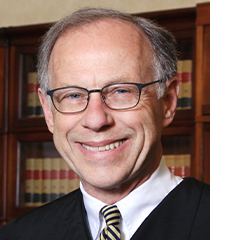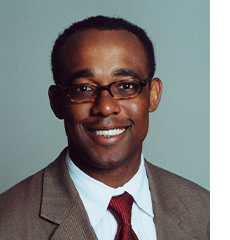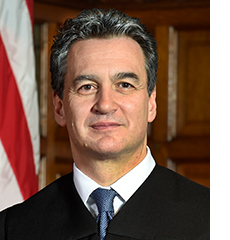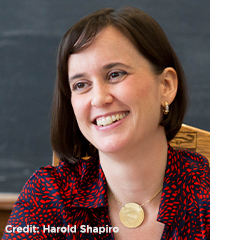
Council Nominees

Thomas A. Balmer was appointed to the Oregon Supreme Court in 2001 and has been elected and re-elected four times. He served as Chief Justice from 2012 to 2018. Before his appointment, he was a partner in a Portland law firm, where his practice focused on business and regulatory litigation and appeals. From 1993-97, he was Oregon Deputy Attorney General, advising electing officials and agency heads on administrative and constitutional matters. Balmer has tried cases and briefed and argued appeals in Oregon and federal courts, including the U.S. Supreme Court.
Balmer began his practice at Choate, Hall & Stewart (Boston), served as a Trial Attorney with the Antitrust Division of the U.S. Dept. of Justice, and practiced with Wald, Harkrader & Ross (Washington, D.C.), before returning to his home state of Oregon. Balmer is the author of numerous articles on antitrust, state constitutional law, legal history, and Oliver Wendell Holmes. He has participated in various international legal programs, including lecturing on judicial ethics in Uzbekistan (under the auspices of the United Nations) and working with judges and schools on law-related education in Zagreb, Croatia.
During his term as Chief Justice, Balmer served on the Board of Directors of the Conference of Chief Justices and was Chair of the Civil Justice Improvements Committee. That committee oversaw a broad-based multi-year project that studied and made recommendations to reduce cost and delay in civil litigation—Call to Action: Achieving Civil Justice for All (2016). The report, and later implementation tools developed by the National Center for State Courts, has served as a roadmap for improvements in state courts across the country.
Education: Oberlin College, B.A.; University of Chicago Law School, J.D.
 Richard R.W. Brooks is the Emilie M. Bullowa Professor of Law at New York University. He joined the law faculty at NYU in 2018, after holding the Leighton Homer Surbeck Professorship of Law at Yale Law School followed by the Charles Keller Beekman Professorship of Law at Columbia Law School. Brooks’ scholarly approach combines economics, game theory and legal analytical methods from private law fields—such as contract, property, fiduciary and corporate law—to study social organization more broadly.
Richard R.W. Brooks is the Emilie M. Bullowa Professor of Law at New York University. He joined the law faculty at NYU in 2018, after holding the Leighton Homer Surbeck Professorship of Law at Yale Law School followed by the Charles Keller Beekman Professorship of Law at Columbia Law School. Brooks’ scholarly approach combines economics, game theory and legal analytical methods from private law fields—such as contract, property, fiduciary and corporate law—to study social organization more broadly.
Brooks has published numerous books and articles that analyze behavior through the lens of economics, custom, and law. His most recent book, Saving the Neighborhood: Racially Restrictive Covenants, Law, and Social Norms, (coauthored with Carol Rose) examines the history and enduring legacy of racially restrictive property agreements (or racial covenants), which the Supreme Court ruled unenforceable in 1948. Yet despite this repudiation, racial covenants lived on in real estate records, influencing the behaviors of lenders, insurers and realtors, as well as the beliefs and expectations of homebuyers and sellers. Over time the impact of racial covenants would fade, but their legal and social significance lingered well beyond 1948. Racial covenants, even without formal enforcement, were effective signals, creating “common knowledge” that guided the actions of real estate professionals and ordinary buyers and sellers in the housing market.
Brooks’ work also includes articles about contract law and theory, experimental economics, the economics of environmental law, fairness, and perceptions of the legal system.
He also taught previously at Northwestern University School of Law and at Cornell University in the Department of Policy Analysis and Management. Brooks has served as a visiting researcher at the Center in Law, Economics and Organization at the University of Southern California Law School; on an advisory committee to the Social, Behavioral and Economics Sciences Division of the National Science Foundation; and as a research specialist in the Antitrust Division of the Department of Justice. He was elected to the American Academy of Arts & Sciences in 2022.
Education: Cornell University, B.A.; University of California at Berkeley, M.A.; University of Chicago Law School, J.D.; University of California at Berkeley, Ph.D.
 Michael J. Garcia, Associate Judge of the New York Court of Appeals, was born in Brooklyn in October 1961. On January 20, 2016, Governor Andrew M. Cuomo nominated him to the Court of Appeals, and the New York State Senate confirmed his appointment on February 8, 2016.
Michael J. Garcia, Associate Judge of the New York Court of Appeals, was born in Brooklyn in October 1961. On January 20, 2016, Governor Andrew M. Cuomo nominated him to the Court of Appeals, and the New York State Senate confirmed his appointment on February 8, 2016.
Garcia received his undergraduate degree with honors from the State University of New York at Binghamton in 1983 and an M.A. degree from the College of William & Mary in 1984. In 1989, he received his law degree (summa cum laude) from Albany Law School, where he graduated as valedictorian. He began his legal career as an associate at Cahill Gordon & Reindel LLP in 1989. From 1990 to 1992, he served as Law Clerk to Hon. Judith S. Kaye, then Associate Judge of the New York Court of Appeals.
From 1992 to 2001, Garcia served as an Assistant United States Attorney for the Southern District of New York. For his work in a number of high-profile terrorism investigations and trials, he received two Attorney General’s Awards for Exceptional Service and the Attorney General’s Award for Distinguished Service. In 2001, he became Assistant Secretary of Commerce for Export Enforcement in the Bureau of Industry and Security, and in December 2002, he became Acting Commissioner of the Immigration and Naturalization Service (INS) at the United States Department of Justice. In that role, he led the transition of the agency into the United States Department of Homeland Security. From March 2003 to August 2005, Garcia served as Assistant Secretary for Immigration and Customs Enforcement (ICE) at the Department of Homeland Security. Garcia was the United States Attorney for the Southern District of New York from 2005 to 2008, when he joined Kirkland & Ellis LLP.
Garcia was Vice President of the Americas for INTERPOL, the international police organization, from 2003 to 2006. From 2012 to 2014, he was Chair of the Investigatory Chamber of the Ethics Committee of the Federation Internationale de Football Association (FIFA). Garcia previously served on the Board of Trustees of El Museo del Barrio.
Education: Binghamtom University, B.A.; College of William and Mary, M.A.; Albany Law School, J.D.
 Cristina M. Rodríguez is the Leighton Homer Surbeck Professor of Law at Yale Law School. Her fields of research and teaching include constitutional law and theory, immigration law and policy, and administrative law and process. In 2021, she was appointed by President Biden to co-chair the Commission on the Supreme Court of the United States. Her recent writings include the 2020 Foreword to the Harvard Law Review, Regime Change, and the book, The President and Immigration Law, coauthored with Adam Cox and published by Oxford University Press in September 2020. The book explores the long history of presidential control over immigration policy and its implications for the future of immigration law and the presidency itself.
Cristina M. Rodríguez is the Leighton Homer Surbeck Professor of Law at Yale Law School. Her fields of research and teaching include constitutional law and theory, immigration law and policy, and administrative law and process. In 2021, she was appointed by President Biden to co-chair the Commission on the Supreme Court of the United States. Her recent writings include the 2020 Foreword to the Harvard Law Review, Regime Change, and the book, The President and Immigration Law, coauthored with Adam Cox and published by Oxford University Press in September 2020. The book explores the long history of presidential control over immigration policy and its implications for the future of immigration law and the presidency itself.
Rodríguez joined Yale Law School in 2013 after serving for two years as Deputy Assistant Attorney General in the Office of Legal Counsel at the U.S. Department of Justice. She was on the faculty at the New York University School of Law from 2004–2012 and has been Visiting Professor of Law at Stanford, Harvard, and Columbia Law Schools. She is a member of the American Academy of Arts and Sciences and The American Law Institute, a non-resident fellow at the Migration Policy Institute in Washington, D.C., and a past member of the Council on Foreign Relations. She earned her B.A. and J.D. degrees from Yale and attended Oxford University as a Rhodes Scholar, where she received a Master of Letters in Modern History. Following law school, Rodríguez clerked for Judge David S. Tatel of the U.S. Court of Appeals for the D.C. Circuit and Justice Sandra Day O’Connor of the U.S. Supreme Court.
Education: Yale University, B.A.; University of Oxford, M.Litt.; Yale Law School, J.D.
